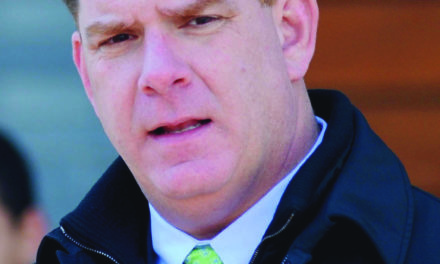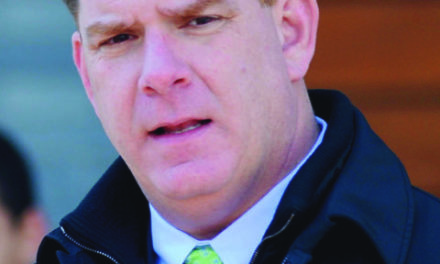Shawn Fain, the current President of the United Automobile Workers (UAW), has emerged as a prominent voice in advocating for the rights and well-being of his members and all workers across the United States. He is a surprise leader – ascending to office in a run-off election after the Department of Labor stepped in and ordered the UAW to hold a direct representation election. When in the first round of voting, no candidate won a clean majority, a run-off election was held, and Fain won by just a few hundred votes.
Sworn in this past March, Fain had to get to work quickly bargaining with the big three automakers. Fain had been in bargaining before, but only as a team member, not as a lead negotiator. He had little time to put a team in place.
“I was sworn in on the Sunday, end of March, and that Monday through Wednesday, we were running our bargaining convention. I had no press, no agenda, no nothing when I showed up on Monday for the convention. I had no idea of what was even on anything,” Fain said in an interview with the Intercept.
Because of the nature of his rise to the presidency at UAW, Fain looked to outside sources to help him gain a fresh perspective on the union’s approach to bargaining.
“I just felt like we were so entrenched in a way of doing things in the UAW. And I saw that, even me coming up with 29 years. I mean, it’s ingrained in you, in how we do things. So, I thought it was imperative to bring in an outside set of eyes for people to look at things with a fresh perspective and give us insight. And then utilize the people we have, the UAW people at that level, and then come up with a holistic plan for how we want to approach this.”
Just seven months later, after running one of the most infamous strikes in recent history, the UAW secured all three of their tentative agreements with the Big Three. While the agreements didn’t get the 40% raise UAW’s members were demanding or the 32-hour workweek they had been seeking at the start of negotiations, the agreements did include a 25% raise over four-and-a-half years, billions of dollars in new product commitments at Detroit Three plants, progress on ending the two-tier wage system that has dogged the union and major inroads into its demand for what Fain calls “a just transition” to electric vehicles.
Unfortunately, it failed to achieve its goal of restoring traditional pensions and retiree health care benefits for hourly workers hired after 2007.
Fain points out that the stand-up strike also affected members unlike he’d seen in years.
“Our membership and our leadership are unified like I’ve never seen in my 29 years. And that’s an awesome thing to look at in seven months.”
**Trash Offers Trashed**
Part of that unity can be attributed to ability to inspire members. Videos for members featured him throwing automaker contract offers into the garbage can calling them “trash” and “insulting.” In one member video, he wore an “Eat the Rich” t-shirt.
“This trashcan is overflowing with the bulls— that the Big Three continue to peddle,” he said. “We’re all fed up with living in a world that values profits over people. We’re all fed up with seeing the rich get richer while the rest of us just continue to scrape by. We’re all fed up with corporate greed and together we’re going to fight like hell to change it. The race to the bottom ends September 14.”
He also points out how this strike and the subsequent tentative agreement has inspired others.
“When the UAW was founded, my grandparents’ generation left poverty and destitution in the South, they moved North, they got jobs at UAW factories, and it changed their lives. It was a life-changing job. We haven’t been that in the last couple of decades. This contract gets us back to setting the standard again, and that’s why it’s so important. To get back to setting the standard, to lifting the standard for everybody else, and then just building on that.”
The UAW’s stunning wins at the bargaining table have been widely hailed as a possible turning point for struggling blue-collar workers across numerous industries to finally achieve a middle-class lifestyle.
President Joe Biden joined striking workers on one of the UAW’s picket lines in Michigan, the first time a sitting president had done so. President Biden also met Fain and other UAW members at a Stellantis Belvidere plant in Illinois that the automaker closed earlier this year. In their negotiations, the union won the reopening of the plant, saving 1,200 jobs.
Autoworkers, both union and nonunion, have been hit particularly hard over the years in a struggling US manufacturing sector. Hourly wages in auto plants, adjusted for inflation, have fallen 10.2% since 2019, according to Labor Department figures cited by the Wall Street Journal.
The UAW has lost thousands of factory workers as automakers closed a staggering 65 plants over the past 20 years, according to the union. Those days are over, Fain said.
“In the new UAW, we’re not leaving anybody behind.”
Days after the tentative Detroit automaker agreements were reached, Toyota and Honda announced pay hikes for their U.S. hourly employees. It’s thought that other foreign automakers will raise wages as well to stave off UAW organizing attempts.
But its success at the Detroit Three at a time of widespread labor activism, puts the UAW in its strongest position in decades to organize other automakers.
The tentative contracts “taught companies not to underestimate us,” Fain said. “We win when others see what we achieved and stand up for themselves.”







